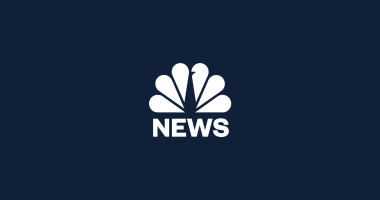
Ten years ago, when GLAAD released its first report on L.G.B.T.Q. inclusiveness in movies, Walt Disney Studios received a “failing” grade. Disney was far from alone. But most other studios began to get better report cards from the advocacy group as the years progressed. Disney, not so much.
So the latest “studio responsibility” report from GLAAD, released on Thursday, ranks as something of a milestone: Disney is now leading the way.
Walt Disney Studios released five movies in theaters in 2021 that included at least one significant L.G.B.T.Q. character — more than any other film company, according to GLAAD. Also, Disney was the only major studio to release a movie with a transgender character. (It was “West Side Story,” which Disney released on its 20th Century label.)
“Compared to the other studios tracked in this report, Walt Disney Studios historically has a particularly poor reputation surrounding L.G.B.T.Q. inclusion,” GLAAD said, noting how far Disney has come. The organization also pointed out that Disney suffered lost ticket sales for its inclusiveness; some countries in the Middle East and Southeast Asia ban movies that depict same-sex relationships, and Disney — unlike some competitors — has stopped altering finished films to gain entry.
“We hope to see more studios standing bravely behind their storytelling and creatives, even if it may potentially mean a loss of profits in some areas,” GLAAD said.
On Being Transgender in America
Even so, the organization gave Disney an “insufficient” grade, noting that some of the studio’s L.G.B.T.Q. characters fell short because they were one dimensional (the transgender boy in “West Side Story”) or their sexual orientation was only communicated through stereotypical mannerisms or clothing (a male sidekick in “Cruella”). For the first time, GLAAD also based its grades on corporate actions, balancing support of gay, lesbian, bisexual and transgender employees and advocates with donations to anti-L.G.B.T.Q. politicians.
In the past, GLAAD has not looked at political donations. It decided to change course in the spring, when Disney became entangled in a dispute with the Republican governor of Florida, Ron DeSantis. The uproar involved Florida legislation prohibiting classroom discussion of sexual orientation and gender identity through the third grade and limiting what teachers could say in front of older students. Disney tried not to take a side at first, at least publicly, which prompted an employee revolt. Disney then denounced the law, setting off a political firestorm, with right-wing figures railing against “woke Disney.”
The matter continues to smolder. On Monday, the conservative Catholic League announced plans to release a documentary next year called “Walt’s Disenchanted Kingdom: How Disney Is Losing Its Way.” It will take a disdainful look at Disney’s evolution on L.G.B.T.Q. inclusiveness.
Robert A. Iger, who returned as Disney’s chief executive last month, told employees at a recent town-hall meeting that inclusion, acceptance and tolerance would remain “core values” of the company’s storytelling. “It must continue,” he said. “We’re not going to make everybody happy all the time, and we’re not going to try to.”
Disney released more movies with L.G.B.T.Q. characters than any other studio in 2021 in part because it is now bigger than any other movie company, having added 20th Century Fox to its holdings in 2019. But Disney has also been trying much harder to be inclusive, including in animated films for families. “Strange World,” released on Nov. 23, featured a gay teenage protagonist, for instance.
Among other studios, Sony Pictures, United Artists and Universal Pictures also received an “insufficient” grade from GLAAD for their 2021 output. Warner Bros. received a grade of “poor,” in part because of the studio’s “dangerous and irresponsible” support of J.K. Rowling, the “Harry Potter” author; Ms. Rowling has long been criticized by L.G.B.T.Q. advocates and allies for her comments about transgender women.
Lionsgate and Paramount were both labeled “failing” because none of their films included an L.G.B.T.Q. character. (Streaming services like Netflix are not graded, but GLAAD said it was considering an expansion for next year’s report.)
Together, the seven biggest studios released 77 films in theaters in 2021 and 16 contained L.G.B.T.Q. characters, mostly white gay men. GLAAD said most of the characters clocked under five minutes of screen time, and several had less than one minute. GLAAD criticized studios for incorporating no L.G.B.T.Q. characters living with H.I.V. or a disability.
“After a decade of this report, we’ve seen exponential growth in L.G.B.T.Q. representation in film,” Megan Townsend, GLAAD’s director of entertainment research and analysis, said in a statement. “Yet there still remains so much work to be done in Hollywood.”
Source: | This article originally belongs to Nytimes.com









